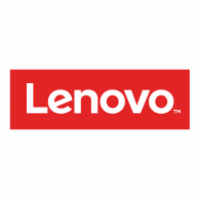
Lenovo
View Brand PublisherHow Lenovo is helping education and healthcare sectors build a smarter future
Even though life has always been unpredictable, the last year and a half have only amplified that unpredictability. While it’s important to focus on the present, it is also important to build a smarter future for others.
So, who is building this future for us? Numerous IT professionals around the world are working tirelessly to make sure that the world is coming closer and getting connected through digitisation. They are the critical cogs in ensuring that the machinery of the world works smoothly, ranging from education to healthcare.
These professionals, or critical unknowns as they are known, have ensured that the world makes a smooth transition to the hybrid model. By building a smarter future for everyone, they have impacted billions of lives and brought a fundamental change to the professional ecosystem.
Education in the new age
According to a study conducted by YouGov and Terapinn, commissioned by Microsoft and Lenovo, there is limited adoption of a full range of solutions despite the enormous scope in e-learning. While online learning is the future of education, factors like distraction and social isolation hamper its effectiveness.
Hybrid learning has been one of the foremost pieces of technology to have gained popularity since the closure of educational institutes owing to the pandemic. According to the aforementioned study, both students and educators increased their use of technology, a trend that is expected to continue.
With solutions like creating more dynamic learning environments with smart collaboration systems like the ThinkSmart Hub, the Lenovo Hybrid Classroom is making it easier than ever for students and educators to connect, share, and learn remotely.
Hybrid learning also removes the need to commute, which hands both students as well as educators a huge advantage. The report states that students believe accessibility and flexibility are major advantages of online learning, which also provides them with access to a broad variety of content while for educators, it’s the centralisation of teaching materials in one online resource that is easily accessible.
Similarly, most students and educators use conventional devices like laptops and tablets for learning and teaching, but very few of them have explored the vast suite of options they have at their disposal for online learning. More educators had access to an online learning management system as compared to students, but 34 percent of educators explored using a VR platform in class.
Lenovo’s virtual reality devices such as ThinkReality and Lenovo VR Classroom 2 allow educators to connect even better with their students through immersive learning. Other innovations in schools and universities include the Lenovo Managed Services that ensure data protection by equipping all devices with secure collaboration tools and cybersecurity software.
Another finding by the report suggests that whenever students or educators face technical difficulties, they are more likely to approach their peers, instead of seeking professional help. Lenovo Premier Support ensures that both students and educators receive comprehensive technical management, helpdesk, and support services - both on and off-campus.
Healing the healthcare system
With intelligent technology coming to the fore, doctors are able to deliver better care and connect well with their patients. Lenovo Health Solutions are bringing doctors closer to their patients virtually, helping them deliver better quality care even when they don’t have to be with them physically.
For example, the Virtual Rounding Solution allows doctors to meet with in-room patients safely and virtually from anywhere with the help of a secure collaboration solution with high-quality video and sound. Pain and anxiety are things that can’t be treated virtually, and this inspires healthcare providers to turn to virtual reality to care for their patients.
Similarly, transformative technology has the ability to change the way we see human connections, and doctors and other healthcare tech brands have made use of Lenovo VR to comfort patients with dementia virtually. Lenovo AI Innovation Centers are helping doctors find ways to improve patient outcomes, and are reducing healthcare professionals’ workload by classifying and diagnosing a variety of tumours and other illnesses.
Many healthcare systems in the world have replaced their architecture with Lenovo’s flexible, scalable and reliable hyper-converged platform. Lenovo is also helping IT infrastructure ensure that patient care doesn’t suffer in spite of disruptions with virtual desktop infrastructure (VDI) as-a-service.
The usage of AI and predictive analytics along with 3D modelling and remote reading is helping doctors improve accuracy and outcomes. These advancements have ensured fewer errors, more pinpoint therapies, earlier and better diagnosis, and improved outcomes from procedures. The combination of AI-assisted diagnosis and smarter technologies strengthens the diagnostic ability of major hospitals to frontline health centres.
Lenovo’s E-Health solution brings together doctors’ expertise with deep learning algorithms and 3D reconstruction modelling and helps them understand tumour parameters and interpret CT scans accurately. All of these smart technologies are developed by critical unknowns, who are bringing the world closer together, one step at a time. It’s time they get credit for all they have done for the world.







